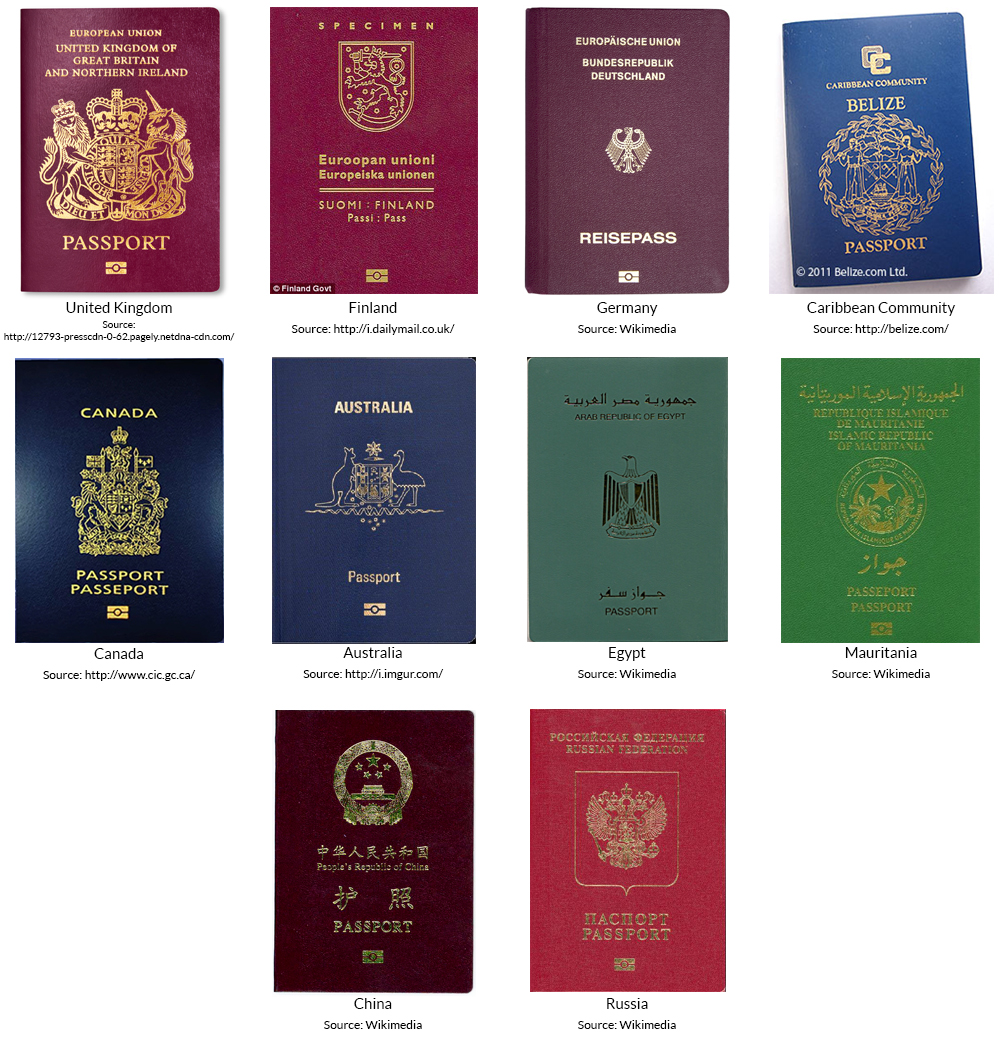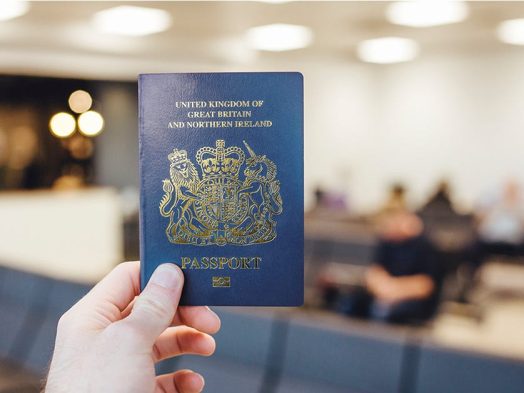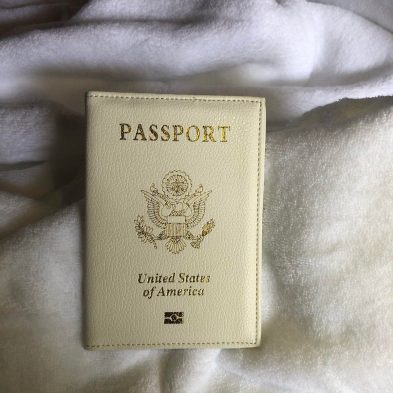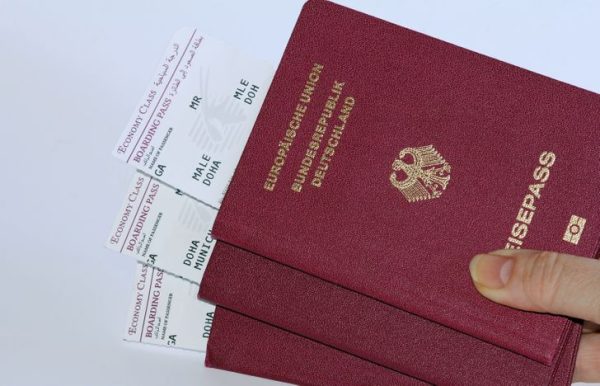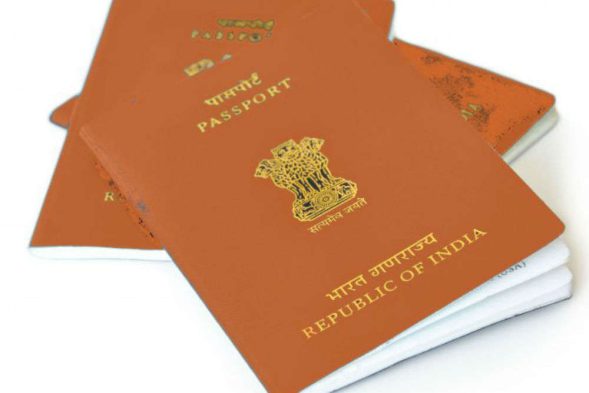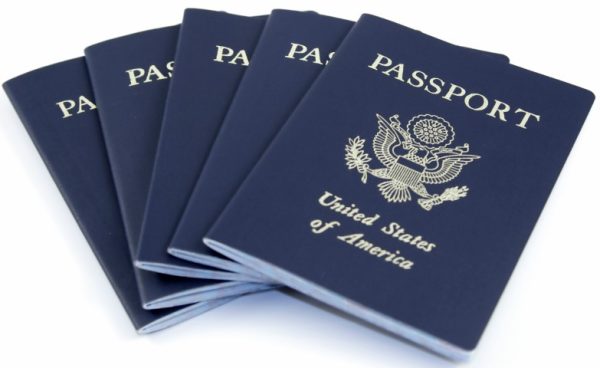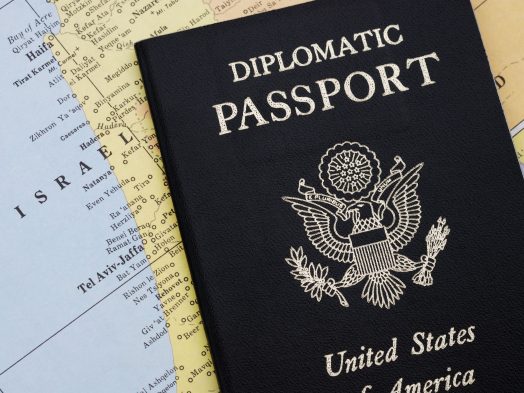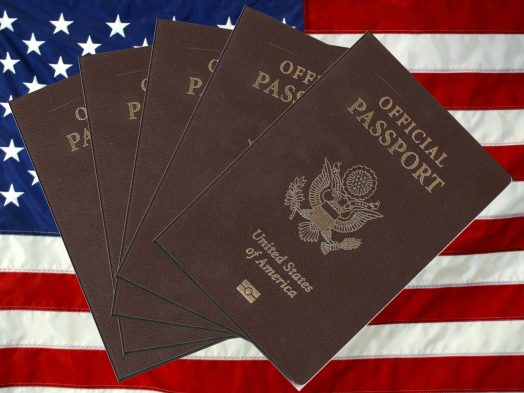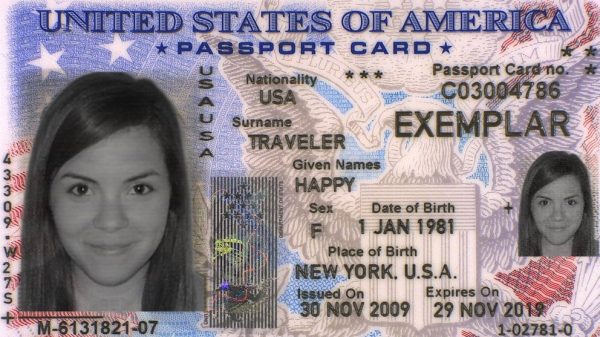A passport is an internationally recognized form of identification that is used while traveling internationally. On-demand, approved institutions provide certifications. Passports can be obtained either online or through organizations. The application process and fees for passports are governed by legislation. For some passports, you must pay a fee and be at least 25 years old.
The term “passport” is well-known and understood by the majority of people all across the world. A passport similar to Nehemiah used during King Artaxerxes’ reign can be found in biblical history (The Bible, book of Nehemiah: 2: 7-9). As a result, while the notion of a passport is not new, its progress has been sluggish compared to other administrative systems. The referenced part of the Bible is shown below as an example of a passport-like document from history.
A passport’s main purpose is to serve as a travel document that permits you to travel from one nation to another while also serving as identification evidence. When a person enters a country’s port legally, the port office, usually the immigration department, issues a stamp called a Travel Visa, confirming that the person’s passport has been examined and that the person is permitted to enter that country if the person has obtained a valid Visa from that country.
What Is The Difference Between A Passport And A Visa?
‘Passport’ and ‘visa’ are two of the most often used phrases in travel jargon. A passport is a requirement for traveling outside of your nation. Every year, each country’s passport is graded based on its power. In other words, how many countries do you need a visa for to go to with a specific passport?
The Indian passport, for example, is rated 66th in 2018, with Singaporeans owning the most powerful passport in the world.
Indian passport holders can travel to 25 countries without a visa this year. 132 countries need Indian passport holders to travel with a pre-arrival visa, while 41 countries provide visas on arrival to Indian passport holders.
A passport is a document issued by the government of a country to its citizens. A passport is a piece of identification that includes a person’s name, date of birth, gender, address, and birthplace. A passport’s function is to identify the person who has the document. The navy blue regular passport for Indians must be renewed every ten years.
A visa is an official document that a government must provide to a passport holder from another country for them to visit the former country. A visa allows a passport holder to travel to a nation other than the one for which he or she has a passport.
Normally, a visa is stamped on a passport. However, it can also be a separate document.
For individuals who go outside the nation, a passport has become one of the most important documents. Before going, it must be obtained from the Passport Authority by submitting an application and personally visiting the appropriate office for identification verification and photo capture.
Different Types of Passport
Passports come in different types depending on your nationality and the country you are traveling to. Here is the latest list of all types of Passport that you should know about.
1. Blue Passport
Passports with the color blue are provided to the general public. The color is used to distinguish the passport from others having official authority. These passports are usually navy blue and are provided for routine travel such as work trips or holidays.
Regular passports include the holder’s name, date of birth, and a picture.
It also covers many additional forms of identification for immigration inspections.
2. White Passport
Individuals who represent the Indian government on official business are granted white passports. An official passport application is not the same as an ordinary blue passport application. In addition to the usual laws and regulations, passport holders have some additional abilities.
3. Maroon Passport
Indian ambassadors, top-ranking government officials, and diplomatic couriers are all granted diplomatic passports. Diplomatic passports are available to IPS (Indian Police Services) and IAS (Indian Administrative Services) officials.
In comparison to normal applicants, applications for such passports are given special consideration, and immigration is made simpler. Taking legal action against diplomatic passport holders who go overseas is difficult.
According to internet reports, the government is also preparing to introduce an orange-colored passport. A segment of the population will be given orange passports if they have not completed class ten. When such passport holders want to go overseas, they will be placed in the ECR (Immigration Check Required) category. However, this information is only rumored, and the Passport Issuing Authority in India has issued no formal declaration on the subject.
4. The Orange Passport (In The Pipeline)
The Indian government has stated that the bulk of the people would be issued an orange passport. It’s used to describe someone who hasn’t studied past the 10th grade. Unlike a conventional passport, the orange passport will be missing the last page, which includes the holder’s father’s name, permanent residence, and other important information.
ECR (immigration check needed) refers to those who do not have a high school diploma. This implies that if a person in this group wants to go overseas, he or she must meet the immigration officers’ requirements.
5. Types Of US Passports
There are five distinct types of passports for inhabitants of the United States of America, each with its application process. The standard passport is charged, while the others are not. You must choose one of the types of travel passports and apply for it based on the purpose of your trip and your current status. Use the information below to learn more about each American passport book.
6. Personal (Tourist) US Passport
The personal US passport, often known as an “ordinary passport” or “normal passport,” is one of the most popular of all US passport categories. It is a blue passport book that is issued to the vast majority of American residents. If you wish to travel, you need to acquire a US passport.
It is solely appropriate for business, flight crew, education, employment, and tourism travel and is not acceptable for governmental reasons. If it was granted to a person above the age of 16, this type of US passport is valid for ten years. Otherwise, it is good for a period of five years. If you lose your passport, it is stolen, or you owe money to the US government, the validity of your passport may be reduced.
7. Diplomatic US Passport
This is a diplomatic passport that is exclusively issued to diplomats and Foreign Service Officers in the United States. The passport book cover is black in color. It is only valid for government-funded travel and is not valid for personal travel. A diplomatic US passport has a maximum validity of 5 years.
8. Service American Passport
The service passport is one of the extant passport categories in the United States, and it is granted to third-party contractors who come to the United States to assist the government. If their journey cannot be completed with a regular passport, they are issued a service passport. The validity period is set at five years.
9. United States Official Passport
The official American passport is maroon in color and is granted to government personnel and officials who travel overseas for professional reasons related to their duties. Military troops are also given it.
Like the other special issuance US passport types, the official US passport is not valid for personal travel and expires in 5 years. The Special Issuance Agency in Washington issues official United States of America passports. The Charleston Passport Center and the Honolulu Passport Agency assist in the issue of military passports.
10. No-Fee Regular Passport
These are blue-colored American passports granted to certain groups of people, such as workers of the American Red Cross, Peace Corps volunteers, and the Department of Defense. The passport is issued free of charge, and the validity period is similarly five years.
11. Passport Card
This is a variant of the normal passport that may be used in the same way as a regular passport but with certain limitations. It can only be used to go to Bermuda, Canada, the Caribbean, and Mexico via land and water.
The passport card is valid for ten years for adults and five years for kids. A modest cost of $30 for adults and $15 for kids, as well as a $25 execution fee for first-time applicants, must be paid.
FAQs
What Is The Purpose Of An Official Passport?
A service passport, sometimes known as an official passport, is a form of passport granted to government personnel. Its aim is to notify officials in the destination country that the bearer is entering the country on official business and will be representing their country. Official passport holders are usually not given any particular benefits.
What Is A Diplomatic Passport And How Do I Get One?
Diplomats who are traveling on official business and representing their home nation overseas are issued a diplomatic passport.
The government appoints diplomats to perform official business in other nations and maintain political, economic, and social connections. Their passports usually offer them specific advantages and immunities in the host nation, such as immunity from prosecution and taxation.
What is a Emergency Passport?
When you’ve lost or had your passport stolen and don’t have time to apply for a new one, an emergency passport, also known as a temporary passport, is granted. For example, suppose you accidentally left your passport on the plane and are unable to board your connecting flight. In that case, you can contact your embassy and request a one-way emergency passport that will allow you to return home.
What is a Collective Passport?
A collective passport may be granted to a group of people traveling overseas collectively, such as schoolchildren. Children, on the other hand, are frequently encouraged to travel with their own passports.
What is a Family Passport?
Family passports are granted to one family member but can be used by all members of the family for travel. The official passport bearer, on the other hand, must travel as well. Family passports are becoming increasingly unusual.
What is a E-Passport?
An e-passport, also known as an electronic passport, is a standard passport booklet with an electronic chip embedded in the cover. This chip holds the passport holder’s information and adds an extra degree of protection against passport fraud.
Why Do I Need a Passport?
Passports are required for international travel since they authenticate your identity and nationality. They provide safe passage and protection in a foreign place to the bearer.
If you’re flying, you’ll have to show your passport many times at the airport, and if you’re driving, you’ll have to show it at the border. To enter your destination country, you may additionally require a visa.
Do I Need A Passport For Domestic Flights?
No. For domestic flights, you usually don’t require a passport because other government-issued picture identification would suffice. Check your country’s travel rules to see what documentation you’ll need for both local and international travel.
Can I Use My Passport as My ID?
Yes. Outside of the airport, you can use your passport as an identification. However, carrying your passport on a daily basis or for a night out is not suggested, as replacing a misplaced passport may be costly and time-consuming.
What Does a Passport Look Like?
Passports are size three travel papers that must follow particular rules for their design, structure, and contents, according to the International Civil Aviation Organization’s Doc 9303 “Machine Readable Travel Documents.”
Size 3 travel documents must be in the form of an eight-page booklet with a data page. The data on the data page must be in specified positions and zones so that it may be read electronically. In addition, the International Civil Aviation Organization (ICAO) requires numerous security measures on passports to avoid counterfeiting and fraud.
Where Can I Travel With a Passport?
The mere possession of a passport does not ensure entrance into the nation you desire. Passports, on the other hand, are required for foreign travel. To enter your target country, you may need to apply for a travel visa ahead of time.
Before you go out on your tour, check out Passport Index to see how many countries you can visit visa-free with your passport and which countries require you to first apply for a visa.
For How Long Must a Passport Be Valid When I Travel?
Passports are typically required to be valid for at least six months from the start of your trip. If there is a chance that your passport will expire while you are traveling, your destination country may refuse to let you in.
The length of time that your passport must be valid varies per nation. Before leaving on your travel, make sure to check the government website of your target country.
To travel, how many blank visa pages do I need in my passport?
For foreign travel, passports generally require two to four blank visa pages. If there isn’t enough room in your passport for the entrance visa to be stamped, the airline may refuse to allow you to board, or your destination country may refuse to let you enter.
The amount of blank visa pages necessary for admission into each nation is varied. Before embarking on your journey, make sure to check the government website of your target country.
Do Children Require Passports?
Passports are required for children and newborns.
Do I Need a New Passport If I Change My Name?
Yes. If your given name or surname has been legally changed, you must apply for a new passport. Your travel documents must represent your true identity.
When applying for a new passport due to a name change, be careful to provide formal name change documentation, such as a marriage certificate.
What Should I Do If My Passport Is Lost Or Stolen?
If your passport is lost or stolen, you must notify the authorities right away. Report what happened to the local police as well as your country’s passport authority or embassy. Your passport will be invalidated to prevent it from being used fraudulently, and you may be given a temporary passport to go home with. After that, you’ll need to apply for a new passport.
Is It Possible To Travel With A Passport That Has Been Damaged?
Most likely not. If your passport has been destroyed in any manner, you should request a replacement. If you show a damaged passport to border security at your destination, it is conceivable and extremely likely that you may be denied entrance.
A passport is deemed damaged by the Canadian government if it seems to have been tampered with in any manner and if identifying the holder is hampered in any way. Water and humidity damage, rips, and illegal marks are all examples of damage.
Passports are important government papers that must be handled with care at all times.
Can My Passport Be Revoked?
Yes. Your passport might be canceled for a variety of reasons, including losing citizenship, being charged with a crime, or providing incorrect information on your passport application. If they believe they have adequate grounds, the passport-issuing body has the power to deny or cancel your passport.
What Kinds of Security Features Do Passports Have?
Passports must have specific security characteristics to avoid counterfeiting and fraud, according to the International Civil Aviation Organization’s Doc 9303 “Machine Readable Travel Documents.”
Holograms that light up under UV light, an electronic chip holding the bearer’s information, optically variable ink that changes color under different light sources, and anti-scan patterns are just a few of the security features.
Passport-issuing agencies are encouraged to implement a range of security elements to make forging their passports as difficult as feasible.
How Are Passports Made?
Passport printing firms create passports. These businesses make ensuring that all passports comply with the International Civil Aviation Organization’s Doc 9303 “Machine Readable Travel Documents” criteria. Doc 9303 establishes a standard for how passports should be manufactured and what security measures they should include to avoid being hacked.
Passports are constructed from a particular type of paper that is sewn together securely. Passport booklets include a biodata page with your image, personal information, and, in certain circumstances, a digital replica of your signature, as well as many blank visa pages ready to document your travels. Holograms, unique typeface kinds, and an electrical chip are all possibilities. Various security measures are integrated into each element of the passport.
Do Passports Include Addresses?
No, your address is not included on your passport. The only information on passport data pages, also known as biodata pages, is your name, passport number, nationality, date, and place of birth, sex, and the passport’s issue and expiration dates.
Should I Sign My Passport?
Yes. A signature page is usually included in passports, and it specifies where you must sign it. On the biodata page of some passports, you may find a digital replica of your signature. It is critical that you sign your passport only in the authorized area on the corresponding page. Any additional marking on your passport will render it invalid.
What Should I Do With A Deceased Family Member’s Passport?
If you have a passport from a deceased family member, make sure to check your country’s website for instructions on how to return it to the government.
If the passport is still valid, that is, it has not yet reached its expiration date, it must be returned to the appropriate authorities. If the passport has already expired, it may not be necessary to return it.
Do US Citizens Need a Passport To Visit The Bahamas?
Yes. When visiting the Bahamas, US citizens must have a valid passport, as it is necessary for re-entry into the US.
Which Is The Best Passport In The World?
According To The Passport Index, the UAE passport is the strongest in the world, since it permits visa-free travel to 116 countries and visa-on-arrival travel to 57, for a total mobility score of 173 nations.
How Many Passports Can One Person Have?
There is no actual limit to the number of passports a single person can hold. However, your home country’s citizenship rules may include provisions for dual citizenship. Some nations forbid citizens from having dual or multiple passports, requiring them to give up their present citizenship in exchange for a new one. Other countries, with various restrictions, offer dual or multiple citizenships. If both nations end up in a conflict, your passport for one of them may be withdrawn if you take up weapons against the other.
